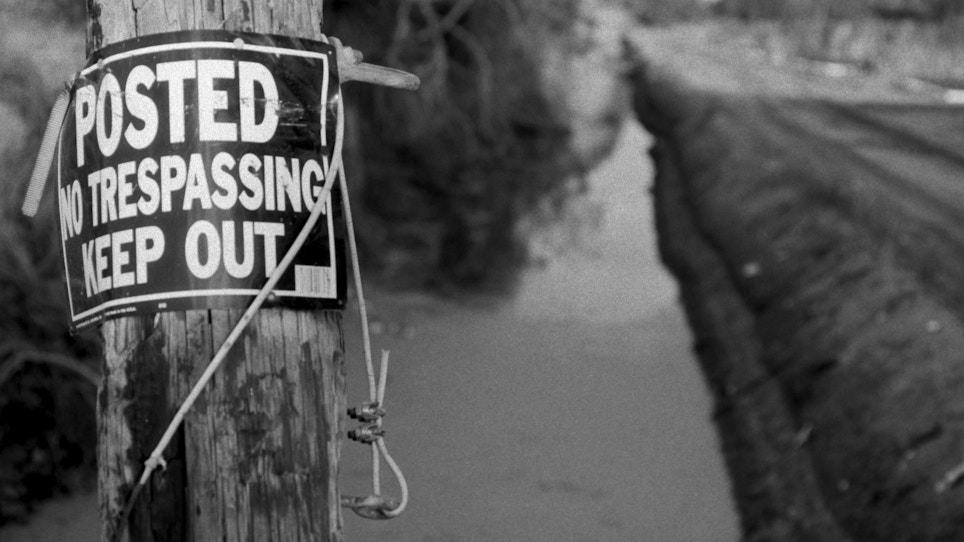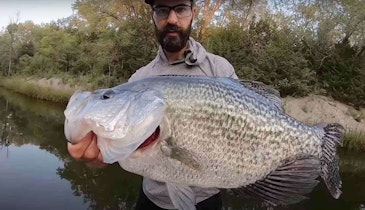The bone-chilling cold ripped at my face, hands and lower back. No matter how many times I adjusted my clothing and gear, the stiff northern wind kept finding a way to torment me. It was late archery season, and I was counting on the sun to knife through the clouds and provide a little warmth. The clouds were winning the battle.
My temporary misery made me think of a line from English philosopher Thomas Hobbes, “The life of man is solitary, poor, nasty, brutish and short.” Hobbes just as easily could have been talking about the life of an unsuccessful bowhunter. With just two days left in the season, I felt sorry for myself and willed a deer to appear.
As darkness drew around me, I heard heavy footfalls landing on the crusted snow and broken branches. Something was making quite a racket, and it was headed straight for me. I slowly reached for my bow and readied myself for a whitetail to make its grand entrance into one of my shooting lanes.
In a millisecond, my heart went from soaring with hope to plummeting into disillusion and frustration. It wasn’t a deer walking toward me, but another hunter. He was on my property, and had no idea he was being watched — until he stopped at my treestand and looked up. Busted!
The intruder assured me he hadn’t been hunting on my property and he was just taking a shortcut back to his pickup. I didn’t buy his claim for a second. I calmly, yet firmly reminded him that he was on private property and that my family doesn’t allow trespassing. I then escorted him out to the road, took a photo of his license plate and reminded him to stay on his side of the fence.
If you’re a landowner or lessee, chances are good you’ll have to deal with trespassers. Here’s what you should do when you encounter interlopers on your property, along with recommendations on how to deal with trespassers you encounter and how to prevent trespassing on your slice of deer-hunting heaven.
The Typical Trespasser
Sadly, if you encounter or find evidence of trespassing immediately before or during deer season, the trespasser is probably a fellow deer hunter. Gaining access to quality hunting land is becoming increasingly difficult, particularly if you don’t have the funds to lease property.
“I once caught two guys trespassing on my land and they told me that it’s cheaper for them to pay the fine for trespassing than it is to lease hunting property,” said Wisconsin hunter Ben Koda.
It sounds irrational, but when you consider that the penalty for trespass in the Badger State is a fine of up to $1,000, you can see why some unethical hunters choose to take their chances with landowners instead of forking over thousands to lease property.
States vary widely in the penalties they dole out for recreational trespassing. In Ohio, criminal trespass is a fourth-degree misdemeanor, with the maximum punishment a fine of up to $250 and up to 30 days in jail. Penalties can be doubled if the violator used a snowmobile or all-terrain vehicle while trespassing. Minnesota also considers trespassing a misdemeanor, punishable by a fine of up to $1,000. If the violation occurs on posted land where “No Trespassing” signs have been erected, the offense is considered a gross misdemeanor, with the maximum fine being $3,000 and up to one year in jail.
Much to the chagrin of many landowners, most states deem trespassing to be a relatively minor misdemeanor offense. It’s a far more serious crime to try to catch and hold a trespasser who’s trying to leave.
“In Michigan, you can’t legally detain someone for trespassing,” said Dean Molnar, assistant chief of the Law Enforcement Division for the Michigan Department of Natural Resources (DNR). “It’s also not safe.”
Molnar points out that most trespassers know they’re committing a crime, adding, “If they’re willing to trespass, what other offenses are they willing to commit to avoid being prosecuted?”
Trespassers typically don’t like to work too hard to violate the law. They park their vehicles near where they enter a property, use established roads/trails on the property and do little to conceal their activities and movements. They’re often easy to catch, but that doesn’t necessarily mean you should go out of your way looking for them.
Handling Trespassers
Dealing with trespassers can be dicey. On the one hand, you feel violated and have a right as a landowner to keep others off your property. On the other hand, confronting intruders and giving them a thorough tongue-lashing can easily turn into a deadly confrontation.
“A mistake I see landowners make is that when they confront a trespasser, they immediately tell them ‘You’re in trouble and I’m going to call a conservation officer,” said Major Terry Hyndman, operations commander for the Law Enforcement Division of the Indiana DNR. “That just warns the guy. They also threaten to take everything they have [their weapon, vehicle, etc.]. Confrontational statements are huge mistakes.”
Even though you are in the right, consider any confrontation with a trespasser to be a negotiation, where you firmly yet politely remind them they are on private property and then ask them to leave.
“One of the best ways to talk to a trespasser is to start by assuming they don’t know they’re trespassing,” suggested psychologist and author Dr. Rachna Jain (www.rachnajain.com). “Tell them, ‘I don’t know if you know it or not, but you are trespassing, and I need you to leave.’”
If you suspect that neighbors are trespassing, Jain recommends talking with them about trespassing problems you’ve had and ask for their assistance.
“Research shows that if you enlist the help of someone, they’re less likely to do what you’re trying to prevent,” Jain added.
Another common mistake landowners make is arguing with trespassers about property boundaries, whether you or a family member previously trespassed on their land, or other accusations squatters might make to rationalize their behavior.
“Don’t defend your position,” said Dave Lakhani, author and expert in persuasion (www.boldapproach.com). “Tell them that you understand they might feel that way, but here’s what they need to do to leave. If they choose not to, don’t continue negotiating. Just call law enforcement.”
Which brings us to another point. Know which law enforcement agencies handle trespassing in your area. In states like Indiana and Michigan, recreational trespassing should be reported to a conservation officer, while in other states like Wisconsin, you should report trespassing to the nearest sheriff’s office.
Many landowners/lessees struggle with the decision of whether to prosecute trespassers. Mistakes do happen, particularly if the violator is a young or an inexperienced hunter. Hyndman cautions that some repeat offenders know which landowners will and won’t prosecute, and take advantage of more permissive property owners. In the end, it’s a personal decision that’s often made based on the magnitude of the problem. If you report the offense, gather as much information as possible about the intruder.
“Take pictures with your smartphone of the individual, their vehicle and where they were found on your property,” Molnar suggested. “Note the date, time, what they were wearing and any other details that will help identify them.”
Nowadays game cameras aren’t just useful for identifying and monitoring deer — they can also be used to catch trespassers.
“Oftentimes you can’t identify someone in a photo, so I put the photo on social media and ask for help,” said Whitetail Properties co-owner and avid bowhunter Dan Perez (www.whitetailproperties.com). “One time I actually had the offender contact me after a bunch of people told him they’d seen his picture on Facebook.”
Preventing Trespassing
Perez doesn’t just use trail cameras to identify and prosecute interlopers, he also uses them to monitor his property 24/7. He then posts large, visible signs indicating his property is being monitored by electronic surveillance. Because some trespassers will seek out and destroy game cameras, he puts dummy cameras out at entrance/exit points and trails and then points a well-concealed camera on the dummy camera to record vandalism as well as trespassing.
Many states don’t require a landowner/lessee to post their property, and those that do provide specific guidelines for how large signs and lettering must be to legally serve notice of no trespassing. It’s still a good idea to annually post your land. It lets everyone know you’re serious about trespassing and won’t tolerate offenders.
“If you just purchased or leased a property, go visit neighbors and tell them you’re putting up signs,” added Perez. “You don’t want them to take it personal. Talk to them about working together to keep trespassers out.”
If you lease property, talk with the landowner about how they want to deal with trespassers. This prevents confusion and ensures you’re not overstepping your rights if you try to prosecute trespassers.
Contact landowners on adjacent parcels before hunting season to review property boundaries, to collaborate on preventing trespassing and to reach an agreement on how to retrieve wounded deer that end up on a neighboring property. Most states require hunters obtain permission from the landowner before venturing on adjacent land to trail wounded deer. It’s part of being an ethical and responsible hunter and will prevent a neighbor from reporting you for trespassing.






